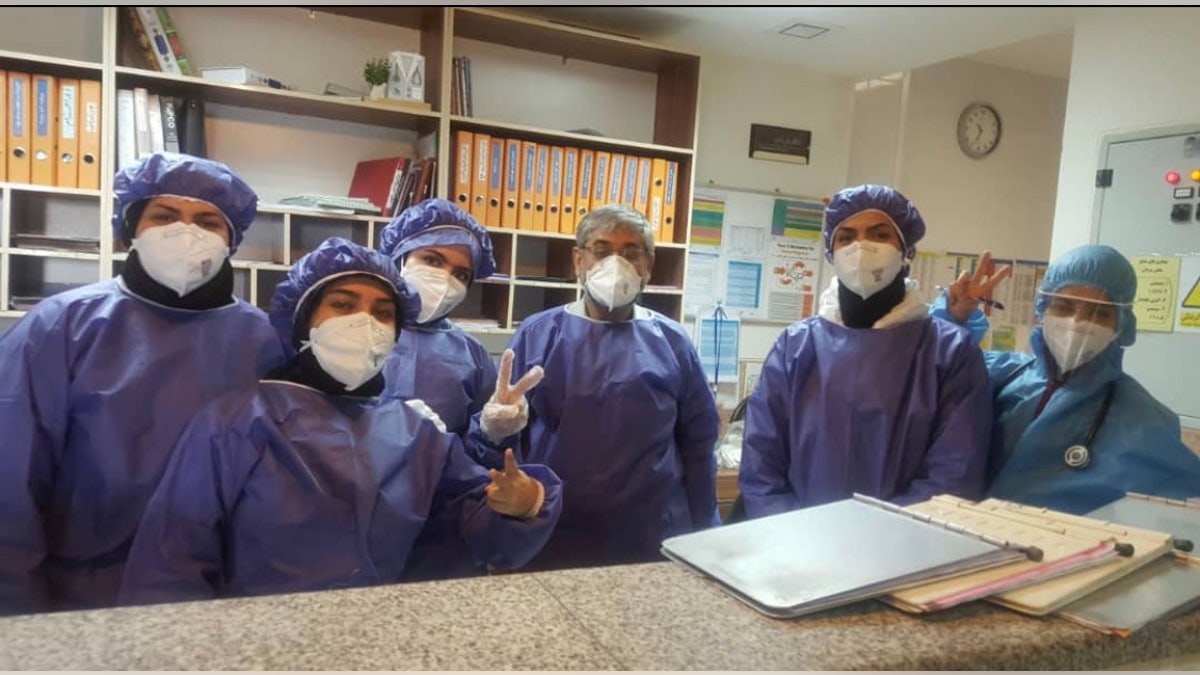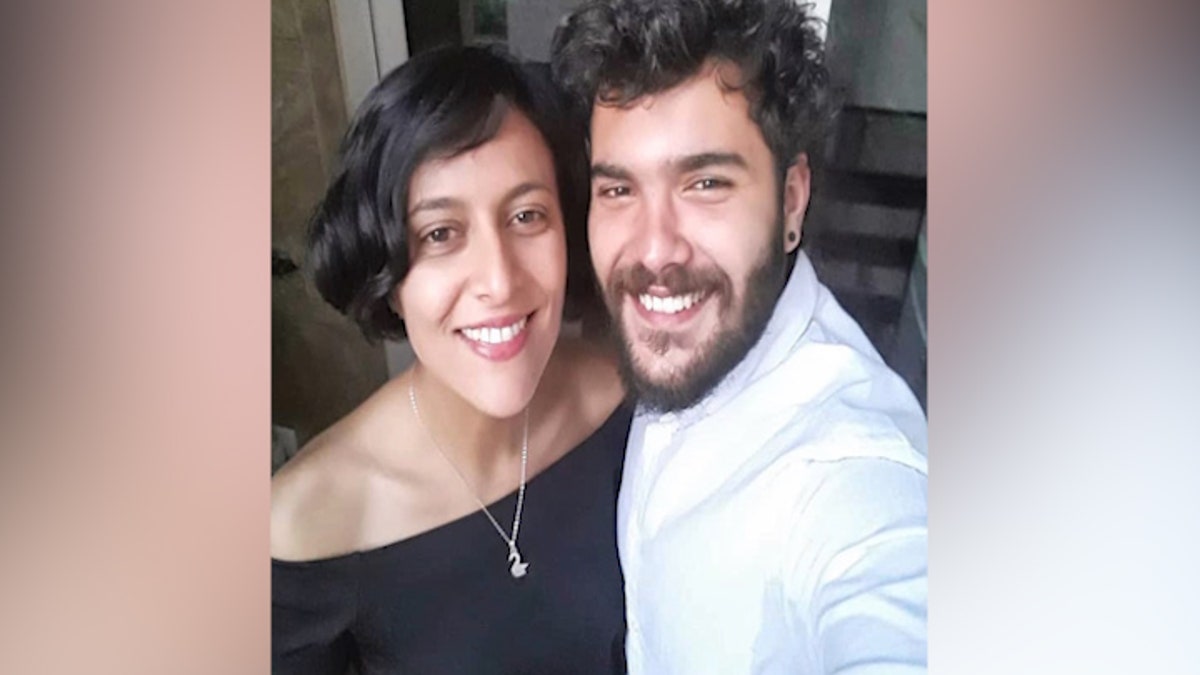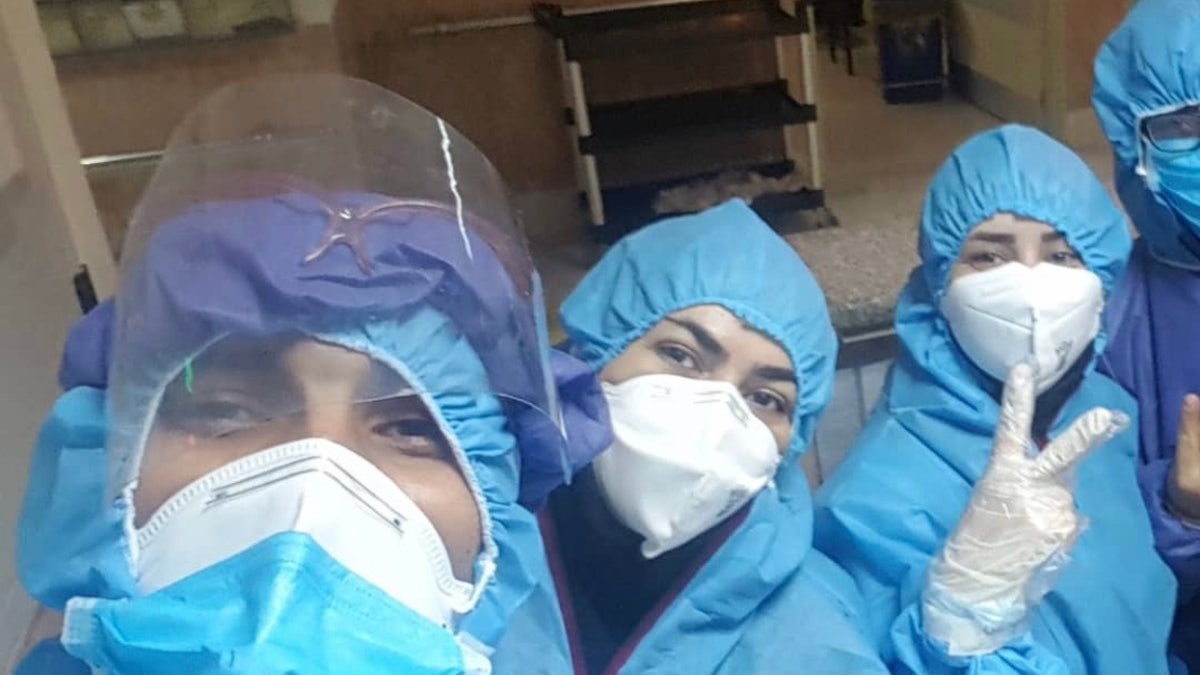Iranians in the US and abroad voice fears during pandemic
The Iranian Ministry of Health is now publicly rejecting outside help.
Get all the latest news on coronavirus and more delivered daily to your inbox. Sign up here.
Ahmed Ahmadi is a law school student in Miami and, like many Americans, the coronavirus pandemic is always on his mind. But his concerns are mostly focused abroad with his family in Iran, where the death toll is now the fourth highest in the world after Italy, Spain and China.
“Because they are elderly, one is above 70, one is close to hitting 80, they are more afraid of the coronavirus. My grandparents haven't left their home in about two to three weeks, almost a month,” said Ahmadi, 24, a University of Miami Law School student.

Ahmadi says his concerns are with his family in Iran. Especially his grandparents, who are both above 70-years-old and fear leaving their house. (Elina Shirazi)
He added, “From what I've heard, the streets are much less crowded. Very few people are driving. Flights are suspended in between cities in Iran and people are avoiding all contact with people outside. Coffee shops are empty. My relatives told me some of their friends passed away from the virus. Once it hit top officials though, it really passed the word around quickly.”
Doctors and nurses in Iran are working to handle the crisis but said they are experiencing a medical shortage, running low on hospital beds, gloves, masks and testing kits.

Doctors and nurses in Iran are doing their best to handle the crisis, but say they are experiencing a medical shortage, running low on hospital beds, gloves, masks, and testing kits. (Elina Shirazi)
“We have to use all our equipment on the patients. We use as much as we have, but there is nothing we can do,” said an Iranian nurse who wanted to remain anonymous. "We have to visit the patients without any cover or hospital gowns. The patients are the ones we need to take care of."
She added, “Because of this situation a lot of nurses and doctors got the virus. Some of them passed away. We don’t have enough beds or ventilators. Even the basic things like gloves and masks and sanitizers are not enough in the hospitals.”
Unlike other countries, Iran is not only dealing with complications from the virus -- it also faces sanctions and tensions between Tehran and Washington.

Heated twitter exchange between Washington's leaders and Iran regarding how the virus originated. (Elina Shirazi)
“We are hoping that this situation will get fixed soon. Until now, there has been no help so far in Iran. We have not seen the proper response or support from people here or from the government,” the Iranian nurse said.
HUNDREDS DEAD IN IRAN AFTER CONSUMING METHANOL THINKING IT WAS CORONAVIRUS PROTECTION
The Iranian Ministry of Health now publicly is rejecting outside help, claiming the country does not need more medical resources.
The international medical humanitarian organization Doctors Without Borders tried sending a 50-bed inflatable treatment unit to Tehran to assist with the virus. Iran revoked its resources, saying it did not need any more help with severe cases.
Michel Olivier Lacharité, manager of the group's emergency programs, is based in Paris.
"We are deeply surprised to learn that the approval for the deployment of our treatment unit has been revoked," he said. "The need for this intervention, and the authorizations needed to start it, were discussed and agreed with relevant Iranian authorities during the past weeks. Our teams were ready to start medical activities at the end of this week.”
CLICK HERE TO GET THE FOX NEWS APP
One married couple in Tehran who didn’t want to be identified by name, said they are concerned about how their country is handling the virus internally.

One married couple in Tehran who didn’t want to be identified by name, says they are concerned about how their country is handling the virus internally. (Elina Shirazi)
“We know that the Iranian government didn’t accept United States' help. The government doesn’t publish any right news about that … we are left in the dark a lot. For the coronavirus tests, the government said that they would give it to us for free and test us inside our homes. That was not true. My sister had coronavirus. If you want to test your health, it is $50. It is too much for people.”
They added, “The city is silent. We have not seen our families in a long time. People here are not very careful about themselves. We did not even know about this virus until it got bad. That might be one of the reasons Iran is among the top suffering countries.”

Unlike other countries, Iran is not only dealing with the complications of the virus. Couple that with sanctions and tensions between Tehran and Washington. (Elina Shirazi)
Iran’s health ministry reported that one person dies from coronavirus every 10 minutes and 50 are becoming infected every hour. Iran’s Ministry of Health spokesman Kianush Jahanpur told state TV that Iran now has 29,406 total cases of coronavirus and 2,234 total deaths.

